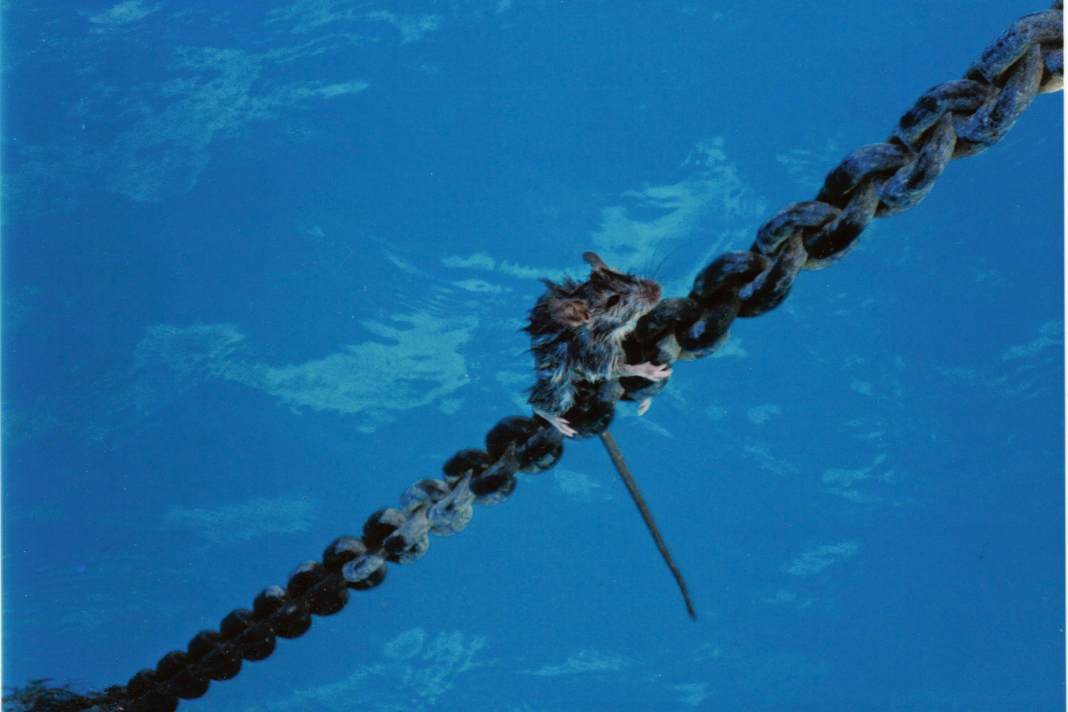




With a boat, you are in the middle of nature: water, supplies in the locker, and often the boat lies uninhabited on the jetty - or is it not completely uninhabited? The conditions for uninvited guests are ideal, as there is plenty of food and secluded corners. Especially in tropical areas, pests can quickly become a nuisance. Whether cockroaches, flies or mice, vermin always harbour the risk of infection.
There are basically two approaches to pests: prevention and control. It is best to do everything possible to prevent pests from coming on board in the first place. However, this is not always possible, so you should be prepared. Fruit flies, moths and cockroaches can be kept away by stowing and storing food properly and handling waste properly. Once on board, they will otherwise multiply explosively.
Fortunately, mice and rats are less common, but the risk increases in winter when the boat is empty and there are still supplies in the locker. Rodents can cause considerable damage by building nests and leaving their droppings behind. It helps to block access points and remove supplies.
Mosquitoes are most common and annoying in summer. In tropical areas they also carry diseases, but on the North and Baltic Seas they are usually just annoying. Nets and special sprays are the best way to deal with them. Spiders are actually considered useful, but the nets are a nuisance if they block the clicker, for example. We have compiled some tips against pests below.
Cockroaches

These little crawlers are almost like superheroes: They can fly, hide in tiny crevices and are so robust that they are almost impossible to destroy. However, nobody wants them on board. Special precautions should therefore be taken when storing fresh food. Cardboard packaging should not be taken on board. Cockroaches like to lay their eggs in fruit cartons, and even if nothing conspicuous is visible, the little ones can hatch and become a nuisance. Therefore, empty all cartons on board and stow unpackaged food on board.
Cockroaches can also fly, which is why anchoring too close to the coast can be problematic. Once they are on board, they are difficult to catch. Special traps can help. You can also make a simple trap with on-board equipment: Put some sugar and high-proof alcohol in a jar and leave it open. The cockroach will be attracted to the sugar and anaesthetised by the alcohol. It can then be disposed of overboard.
Moths and fruit flies
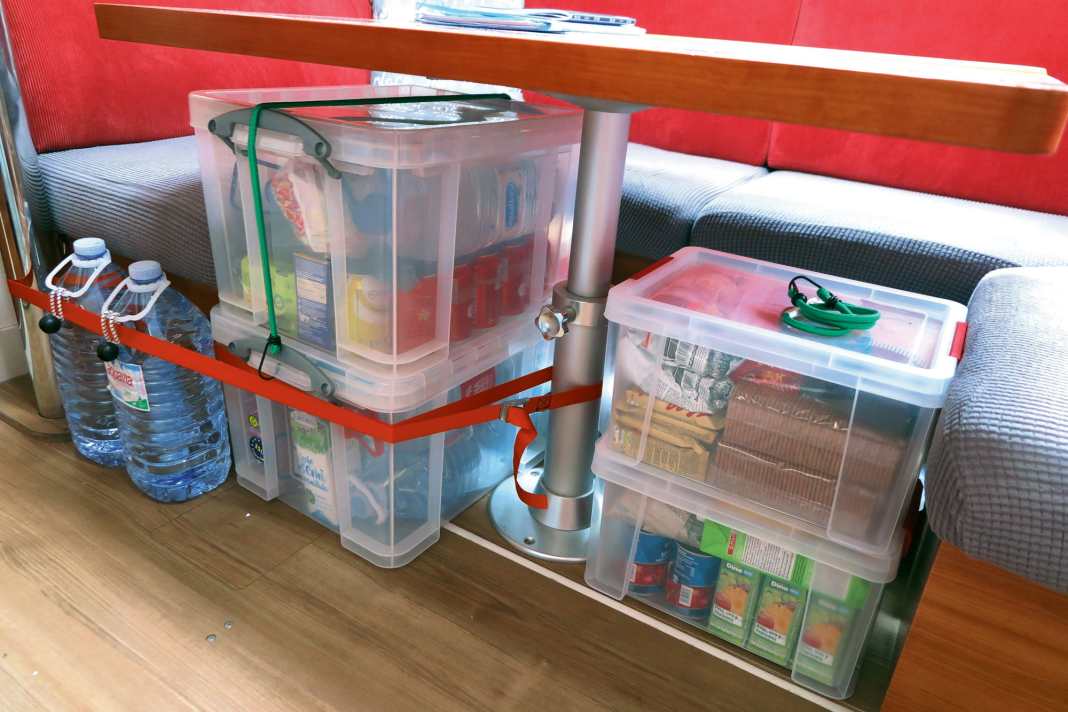


Food moths or fruit flies can destroy food supplies and also simply cause a nuisance due to their abundant presence. An infestation of these pests is usually a home-grown problem if food sources such as flour, cereals, fruit and even rubbish are easily accessible. All food should be stored in sealable containers or in a cupboard. If fruit spoils, dispose of it quickly and also store rubbish in sealed containers.
If it is already buzzing on board, traps can also help here. These can be purchased from specialised retailers or online. There are also ways to improvise with on-board products. Vinegar or sweet drinks attract fruit flies. A drop of washing-up liquid reduces the surface tension of the liquid so that the fly sinks into it when drinking. On board, it is important that the trap is secured, otherwise it will spread its contents all over the boat.
Mice and rats
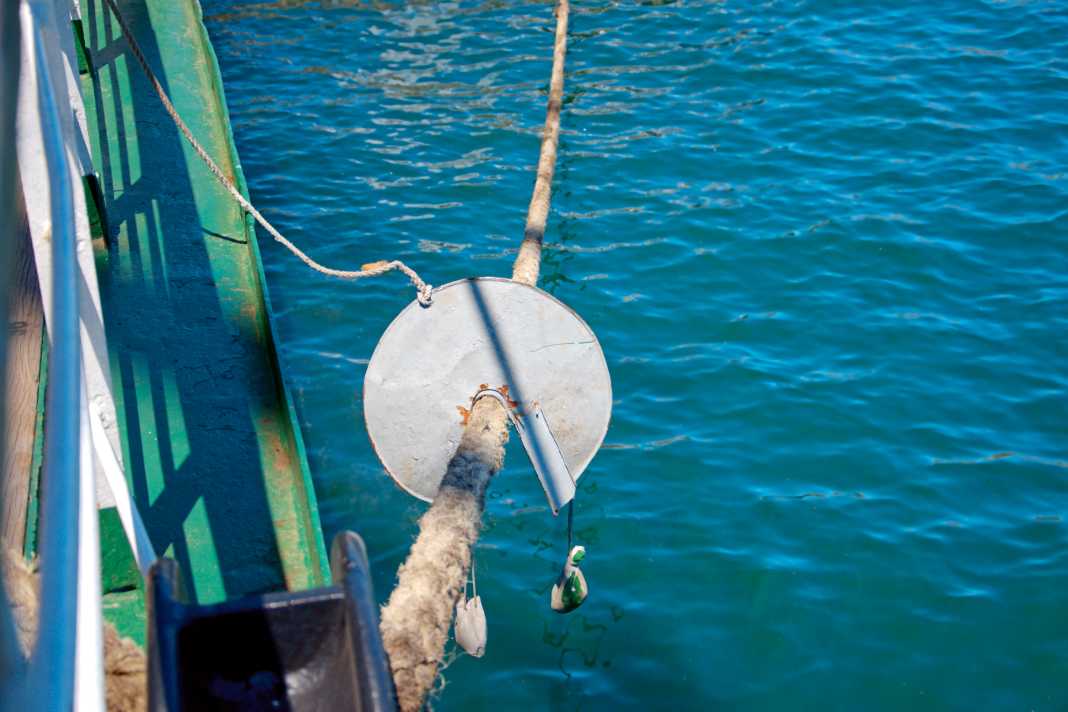


Mice and rats are not normally an issue on board during the season. Only the choice of berth can cause nasty surprises. If you moor next to a restaurant and there are rubbish containers with food waste right next to the berth, then rodents can also find their way on board. Although this is unlikely, the accessories trade offers so-called rat trays. These round deflectors are pulled over the mooring line and block the way on board.
Mice and rats can become more of a problem in the winter months when the boat is uninhabited for longer periods. But there are two effective measures here: clear all food off the boat, including packaged items such as pasta or chocolate bars. Also, don't leave any mooring lines hanging on the floor. This would be a welcome route for the rodents. Once they have settled on board, they will also destroy cushions (material for nest building). Therefore, remove food sources and access points. If mice have made it on board, only traps will help. There are different variants here.
Mosquitoes and wasps
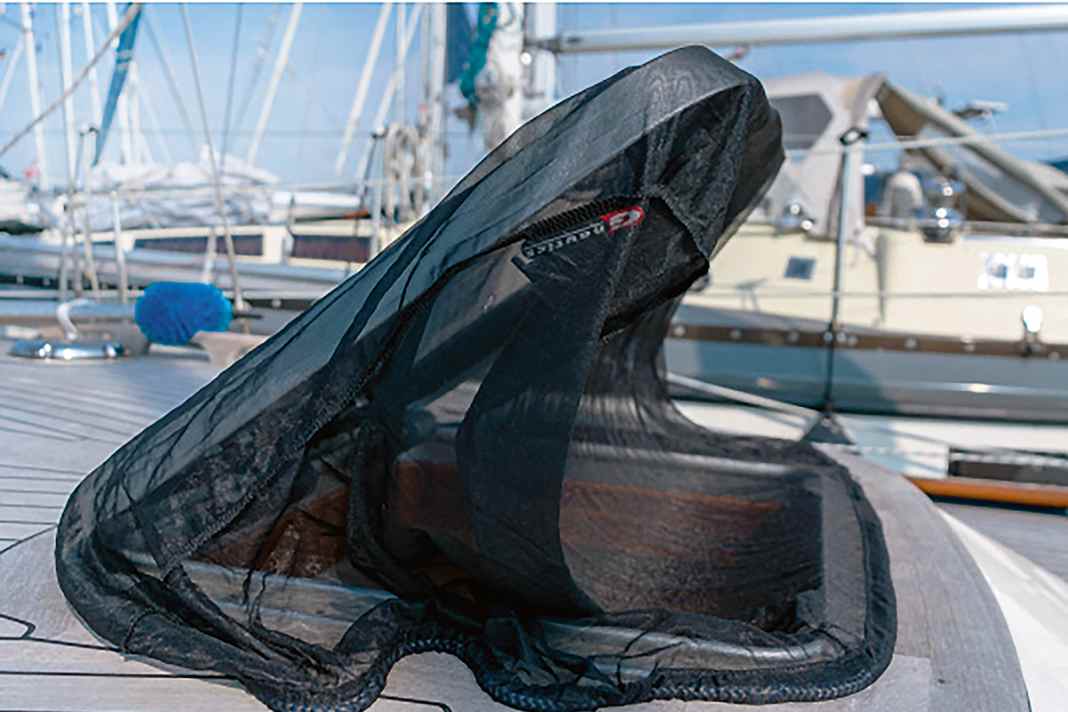


Especially in light winds and close to the shore, the bloodsuckers can bring the most beautiful evening to an abrupt end. Escaping below deck can help, but with the bulkheads and hatches closed, it quickly becomes unbearably warm in summer - a horror. In most cases, the annoyance of the unpleasant evening doesn't stop there; the itchy bites can still bother you the next day. The first thing that comes to mind as an antidote is sprays such as Autan and the like. They are not only effective against mosquitoes, but also other biting insects and even ticks. Sprayed onto the skin, a special fragrance repels the bloodsuckers and the protection lasts for several hours. The so-called repellents often contain Icaridin (Autan) or DEET (Anti Brumm). The latter has a reputation for being more effective, but DEET (diethyltoluamide) can cause skin irritation. It is therefore recommended for tropical regions.
- Read our special article here "How to protect yourself from mosquitoes in summer".
In the Mediterranean or the Caribbean, there are mosquitoes that can transmit malaria or dengue fever. Therefore, the benefits clearly outweigh the possible side effects. In the North and Baltic Sea region, there have been no known transmissions of dangerous viral diseases through mosquito bites. However, this issue may become more important in Northern Europe in the future as a result of climate change. There are also essential oils, for example from the tea tree, which are said to have an insect repellent effect. Like other repellents, they also target the mosquitoes' sense of smell. They are particularly attracted by the carbon dioxide in the exhaled air and decomposition products from body sweat. If these odours are masked by flavours that mosquitoes don't like, this can mean the difference between a pleasant sundowner in the cockpit or completely stung legs. Experts therefore recommend a shower to wash off the sweat.
In general, sun protection should not be forgotten when using mosquito sprays. The correct order: first apply the sun cream; after this has been absorbed, apply the mosquito spray.
Nets for the companionway and hatches are very effective. Large mosquito nets can also be used to create a mosquito-free zone in the cockpit. Nets also help against wasps.
Spiders
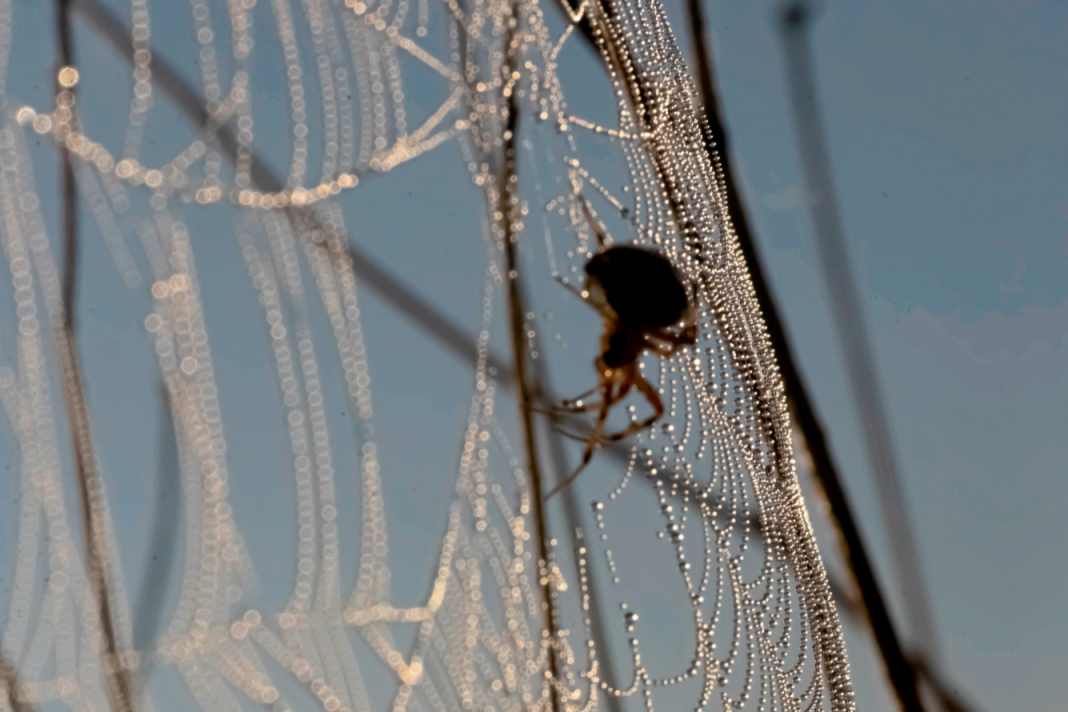


Spiders are not pests, on the contrary, pests such as mosquitoes and flies are their prey. Nevertheless, spiders are usually not welcome. Their webs are particularly annoying and can block the clicker, for example. Owners of dinghies or daysailers who protect their boat with a full tarpaulin are particularly affected. This provides ideal conditions for spiders, which crawl out in large numbers every time the tarpaulin is removed. Below deck on yachts there are usually no problems if all hatches are closed while the boat is unoccupied in the harbour. To prevent spiders in the rigging or under a tarpaulin, there are sprays designed to keep spiders away.
- Click here for our special article "What to do about spiders on board?"

